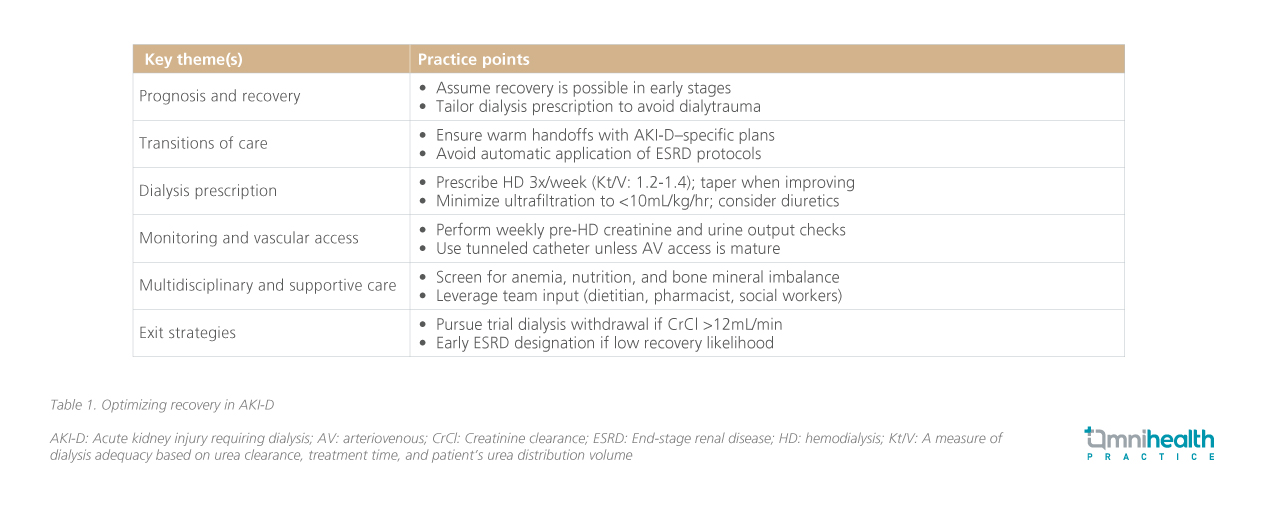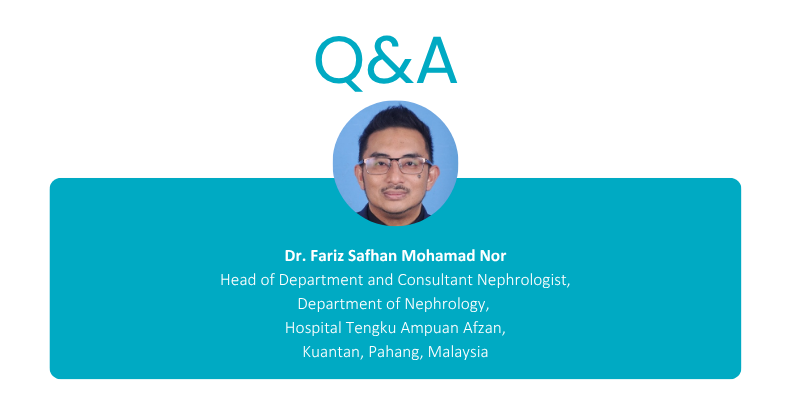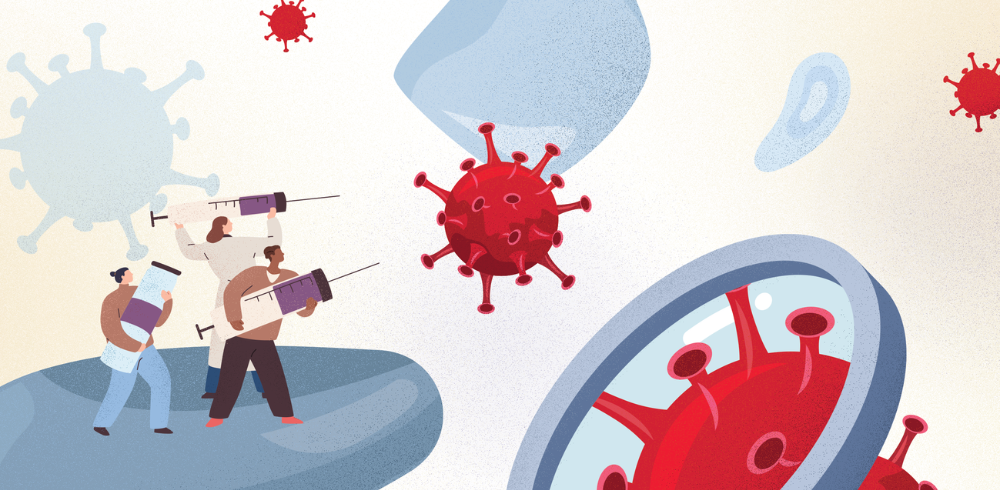Advancing outpatient care for patients with dialysis-requiring AKI: Guidance from the ASN Kidney Health Workgroup
30 Sep 2025
Share
Acute kidney injury requiring dialysis (AKI-D) remains a significant challenge following hospital discharge, with up to one-third of patients continuing dialysis in outpatient settings.1 While some may recover kidney function, others progress to end-stage renal disease (ESRD).1 Yet, current outpatient dialysis protocols often mirror those for chronic ESRD, overlooking the distinct needs of this vulnerable population.1
To address this gap, the American Society of Nephrology (ASN) Kidney Health Guidance Workgroup has released comprehensive recommendations tailored to patients with AKI-D receiving outpatient care.1 Developed through expert consensus and structured review, the guidance emphasizes a patient-centered approach that optimizes recovery while minimizing harm, or “dialytrauma”—a term referring to dialysis-associated injury that can hinder renal recovery.1
Key areas of guidance include individualized dialysis prescription, early prognostication for kidney recovery, structured transition from hospital to outpatient facility, psychosocial support, medication management, and clear criteria for dialysis de-escalation or transition to ESRD.1 Weekly monitoring of kidney function and fluid status, proactive patient education, and specialized care planning are encouraged across all recovery phenotypes.1
With increasing recognition that many AKI-D patients can recover kidney function, this guidance urges clinicians to shift away from ESRD protocols and adopt AKI-specific pathways.1 The following table outlines summary practice points to inform safe and effective outpatient management for this population (table 1).1
In an interview with Omnihealth Practice, Dr. Fariz Safhan Mohamad Nor, a consultant nephrologist from Malaysia, shared his perspectives on the evolving landscape of outpatient care for patients with dialysis-requiring acute kidney injury (AKI-D).
Q1: Outpatient management of AKI-D is receiving increasing global interest. How is this approach being applied in clinical practice?
Dr. Mohamad Nor: While AKI requiring dialysis has traditionally been managed in the inpatient setting, the shift toward outpatient care is gradually gaining traction in select hospitals. This approach is typically reserved for patients with potentially reversible kidney injury, who are clinically stable, free of major complications, and supported by reliable caregivers. Outpatient transition is most often carried out in centers where nephrologist-led teams are able to provide close monitoring, particularly within public and academic institutions.
Q2: What does outpatient dialysis care for AKI-D typically involve, and how is renal recovery monitored?
Dr. Mohamad Nor: Hemodialysis remains the primary modality for outpatient AKI-D, usually provided two to three times per week, tailored to fluid status, biochemical parameters, and symptom control. Monitoring includes regular blood tests and urine output tracking. Some centers have implemented structured approaches to reassess recovery, such as “renal recovery protocols,” where dialysis is tapered or paused if there is evidence of renal improvement. Increasingly, we are also placing focus on reducing dialytrauma, for example, by avoiding high ultrafiltration rates or intradialytic hypotension, as part of efforts to support kidney recovery. In patients with good recovery potential, dialysis spacing can be trialed under close supervision. If recovery is not observed by around 90 days, patients are typically transitioned to longer-term kidney replacement plans.
Q3: How does the current model reflect best practices in AKI-D management, and what developments may lie ahead?
Dr. Mohamad Nor: Current practice reflects a pragmatic adaptation of AKI-D care to available resources and patient needs. While care is primarily nephrologist-led, multidisciplinary collaboration with allied health professionals is increasingly recognized as the ideal. As awareness continues to grow, there is an opportunity to further enhance outpatient AKI-D care, particularly through the development of personalized weaning strategies, improved continuity between inpatient and outpatient care, and structured follow-up plans to support renal recovery.
References
- Vijayan A, et al. ASN Kidney Health Guidance on the Outpatient Management of Patients with Dialysis-Requiring Acute Kidney Injury. J Am Soc Nephrol. 2025;36(5):926-39





